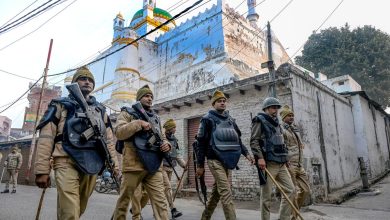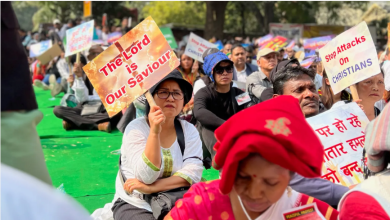Under RSS’s duress, Uttarakhand madrassas incorporate Ramayana in curriculum
 New Delhi: In an upsetting turn of events, madrassas affiliated with the Waqf Board in Uttarakhand are now incorporating the study of Ramayana, a major Sanskrit epic depicting the life of Rama, Sita, and Hanuman.
New Delhi: In an upsetting turn of events, madrassas affiliated with the Waqf Board in Uttarakhand are now incorporating the study of Ramayana, a major Sanskrit epic depicting the life of Rama, Sita, and Hanuman.
According to Kashmir Media Service, this curriculum change is occurring under the influence of the Rashtriya Swayamsevak Sangh (RSS), a Hindu extremist organization, particularly when its political wing, the BJP, is in power across India.
The move to introduce Ramayana studies reflects a broader trend of the RSS seeking to align educational institutions with its ideologies. The Waqf Board, responsible for managing Islamic religious properties, finds itself under pressure to conform to the RSS’s vision of cultural and religious identity, especially in states where the BJP holds political sway.
Under the influence of the RSS, plans were set in motion to reshape the curriculum in select madrassas located in Dehradun, Haridwar, Nainital, and Udham Singh Nagar districts. The new directives aimed to enforce a specific narrative that aligned with the RSS’s vision of cultural and religious identity.
The RSS, known for its nationalist and Hindutva ideologies, sought to control the educational content within these madrassas. Reports indicated that the organization was pushing for the inclusion of specific historical perspectives and cultural narratives that resonated with its worldview, sidelining the original educational goals set by the Waqf Board.
The move raised concerns about the potential impact on religious freedom and the independence of educational institutions. The RSS, through its affiliated shakhas, was accused of disseminating divisive narratives that fueled anti-Muslim sentiments. Hate speeches advocating violence against Muslims were allegedly becoming more pronounced, creating an atmosphere of fear and tension.
As the influence of the RSS continued to grow, there were reports of a campaign targeting the Muslim community.
The contrast between the Waqf Board’s initial intention to promote cultural understanding and inclusivity and the growing dominance of the RSS in dictating educational content underscored the complex challenges faced by the educational institutions in Uttarakhand. It highlighted the need for a nuanced approach that respects diverse perspectives and upholds the principles of religious freedom, even in the face of external pressures.








